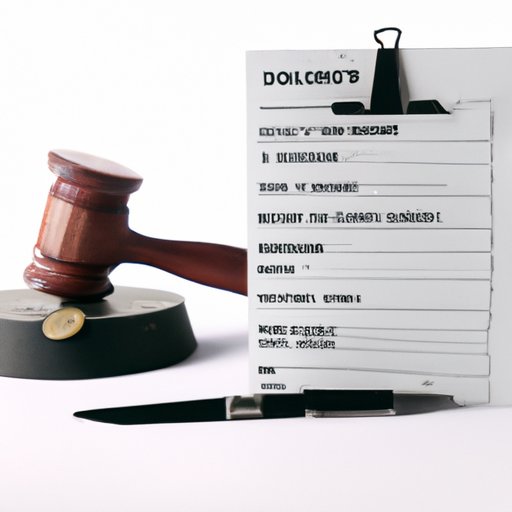
What Can You Do Legally if Someone Owes You Money?
Debt owed can cause significant stress and financial burdens. When someone borrows money from you, they are taking on an obligation to pay it back, and failing to do so can put you in a difficult situation. Fortunately, there are legal options available for resolving this type of situation. In this article, we will explore what you can do if someone owes you money, including negotiating a payment plan, filing a claim in small claims court, legal options beyond small claims court, resources available to consumers, ways to prevent these situations, and expert insights.
Negotiating a Payment Plan
The first step in addressing debt owed is attempting to resolve the issue directly with the debtor. Negotiating a payment plan can be an effective way to address the issue while avoiding the time and expense of legal action. When negotiating a payment plan, it is essential to assert yourself in a diplomatic manner, making it clear that you expect to receive payment while avoiding aggressive or confrontational tactics.
Before agreeing to a payment plan, it is essential to evaluate the debtor’s financial situation to ensure that they can make the agreed-upon payments. If the debtor is unable to make payments, negotiating a payment plan may not be a viable option. Once you have evaluated the debtor’s financial situation, work with them to come up with a mutually agreeable plan. This may involve spreading payments out over a more extended period, reducing the amount owed, or providing other forms of relief.
Filing a Claim in Small Claims Court
If you are unable to come to an agreement with the debtor, filing a claim in small claims court may be the next step. The process for filing a claim varies by state, but typically involves filing a formal complaint with your local court. Small claims court is designed to handle disputes under a certain dollar value, typically $5,000 or less.
The process for filing a claim in small claims court can be relatively straightforward, but it is essential to fully understand the process before proceeding. Small claims court allows individuals to present their case without legal representation, but it is recommended to do research or speak with a lawyer in your state before proceeding. When filing a claim, be sure to outline the facts of the case and any supporting evidence for your claim, such as invoices or contracts related to the debt.
Legal Options Beyond Small Claims Court
If the debt is significant or the debtor is uncooperative, legal options beyond small claims court may be necessary. Other legal options for debt collection include hiring a debt collector or filing a lawsuit against the debtor. While these options can be effective, they also come with risks and costs. Hiring a debt collector, for example, can result in collection fees paid to the agency, and the debtor may respond negatively, resulting in further legal action.
Similarly, filing a lawsuit can be expensive, time-consuming, and offer no guarantee of successful debt recovery. It is essential to understand the potential risks and benefits of each option before proceeding.
Resources Available to Consumers
There are resources available to consumers who need help understanding their rights and options when it comes to debt owed. Credit counselors, legal aid clinics, and other organizations can provide support and guidance on how to navigate the legal process. These resources can be invaluable, particularly to those who may not have the means to hire a lawyer or file a lawsuit.
If you need help with debt owed, consider reaching out to a credit counselor or legal aid clinic in your area for assistance. They can help you understand your legal options and guide you through the process of resolving the issue.
Preventing These Situations
Effective prevention is an essential tool in avoiding debt owed situations. There are practical steps you can take to reduce the risk of lending money to someone who cannot pay it back. For example, setting clear contract terms, performing background checks on the debtor, or using billing software can help prevent disputes and ensure that both parties understand their obligations.
Expert Insights
Legal experts, financial advisors, and debt collection professionals offer valuable insights into debt recovery and prevention. Speaking with experts in these fields can provide a deeper understanding of how to navigate the legal process effectively and avoid future situations. Quotes and anecdotes from professionals can make an article more engaging and authoritative, adding depth and perspective to the topic.
Conclusion
Debt owed can be a stressful and emotionally charged issue, but there are legal options available for resolving the situation. Negotiating a payment plan, filing a claim in small claims court, and exploring legal options beyond small claims court are all potential paths for debt collection. Resources are available to consumers who need additional support and guidance, and effective prevention can help avoid these situations in the future. Ultimately, seeking legal help if needed is always an option to enable a fair outcome.





